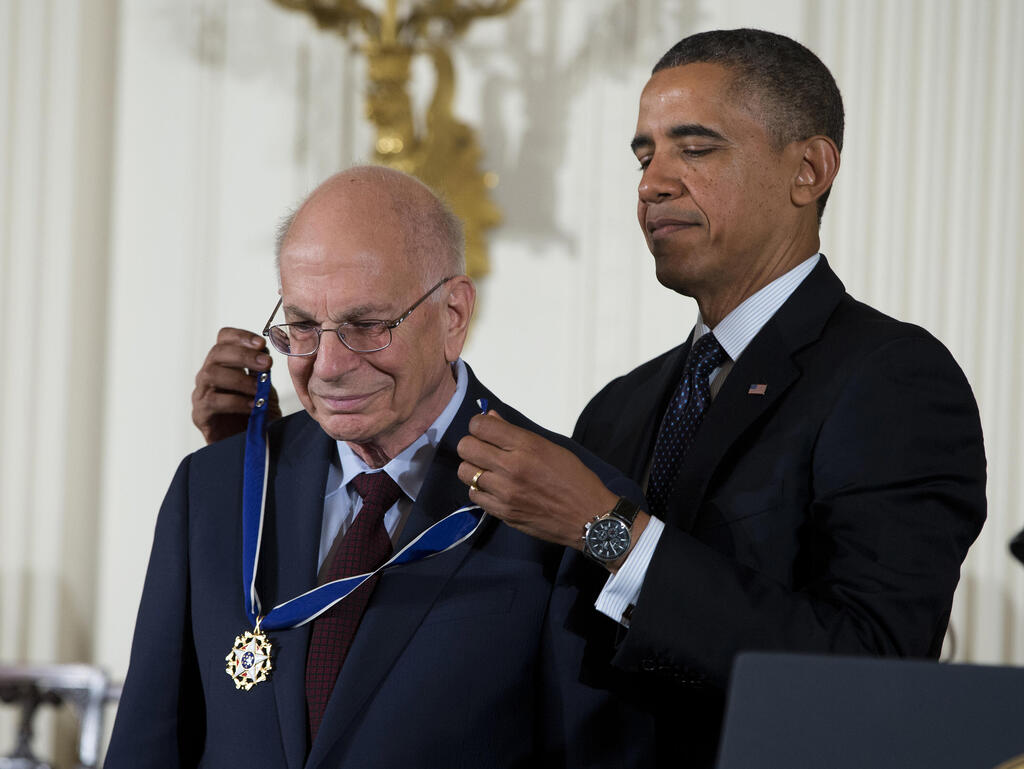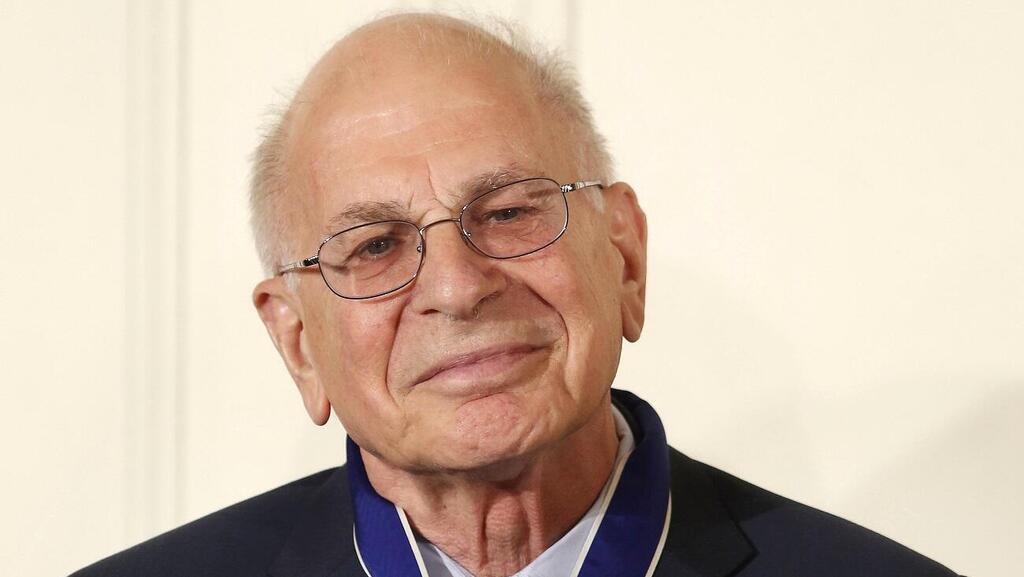Prof. Daniel Kahneman, Nobel laureate in economics, passed away on Wednesday at the age of 90. He was a professor of psychology and an expert in behavioral economics, holding dual Israeli and American citizenship.
Kahneman was born in Tel Aviv to Jewish parents from France, who chose to give birth to their son in Israel during World War II before returning to France. During the war, his father was arrested by the German occupation authorities but was later released. The family fled to the "Free Zone" (Vichy France), where they hid until the end of the war.
In 1946, after his father's death, the family (his mother Danielle and his sister) immigrated to Israel. Kahneman was educated at a high school in Jerusalem. He served in the IDF as a military psychologist and completed his undergraduate studies in mathematics and psychology at the Hebrew University of Jerusalem. After his release from the military, he attended the University of California, Berkeley, for doctoral studies in psychology.
In 1961, Kahneman returned to the Hebrew University and joined the psychology department faculty. In 1969, he began collaborative psychological research with Prof. Amos Tversky. Their primary focus was on the intuitive judgment processes of individuals in economic contexts. Through various studies, they demonstrated consistent biases in decision-making, challenging the assumption of human rationality upon which much of economic theory is based.
Kahneman's work significantly impacted the fields of psychology and economics, leading to a deeper understanding of human decision-making processes and their implications for economic theory and policy.
In 1975, Kahneman moved to Canada and began working at the University of British Columbia in Vancouver. Meanwhile, Tversky also left Israel and started working at Stanford University in the United States.
2 View gallery


Former US President Barack Obama grants Prof. Daniel Kahneman the Presidential Medal of Freedom
(Photo: AP)
Kahneman and Tversky continued their collaborative research, and in 1979, they published their article "Prospect Theory: An Analysis of Decisions under Risk" in a prestigious economic journal. The article gained widespread recognition in the field of economics.
They introduced a psychological-economic theory that highlighted a significant gap between pure economic theory and human decision-making behavior in economic contexts. They attributed this gap to psychological motives that are not necessarily rational, explaining them through cognitive psychology theories and models.
In their research, Kahneman and Tversky identified several principles that influence human decision-making, including the "status quo bias," where individuals tend to prefer the current state over an option that involves uncertain gains or losses; the "aversion to loss," where individuals assign a higher value to avoiding losses compared to equivalent potential gains; and the "framing effect," where the presentation of decision alternatives in positive or negative terms influences people's preferences.
Their assertion that humans do not make economically rational decisions based solely on economic considerations was revolutionary in the field of economics. Before their work, prevailing economic research viewed economic theory as primarily mathematical, assuming that individuals behave economically based on self-interest and rational decision-making abilities. Kahneman and Tversky's research is now considered a cornerstone of behavioral economics research.
In 2002, Prof. Kahneman was awarded the Nobel Prize in Economics (shared with Vernon Smith). The Nobel Prize Committee recognized Kahneman for laying the foundations of a new research field. They noted that his main findings were related to decision-making processes under pressure and uncertainty, demonstrating how human decisions (in situations of uncertainty) differ significantly from those predicted by standard economic models.
His work influenced an entire generation of researchers in economics and finance, enriching economic theories through insights from cognitive psychology. The committee also acknowledged Tversky's research contributions, although he had passed away in 1996, and thus was ineligible for the prize.


